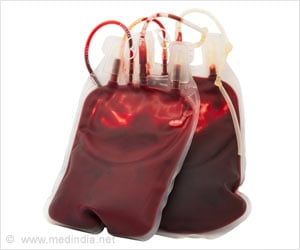A novel gene therapy that can cut off blood and nutrient supply to tumors has been devised by researchers at the University of Florida in the U.S
A novel gene therapy that can cut off blood and nutrient supply to tumors has been devised by researchers at the University of Florida in the U.S.
The researchers have revealed that the new therapy disrupt cancer growth by using a synthetic protein to induce blood clotting.They tested the technique on mice implanted with human colorectal cancer cells. The treatment reduced tumour volume by 53 percent and slowed cell growth by 49 percent in the animals.
Dr. Bradley S. Fletcher, an assistant professor of pharmacology and therapeutics in the College of Medicine, is the researcher whose team has created the so-called fusion protein to target another protein, called tumour endothelial marker 8 (TEM8), which was recently found to be preferentially expressed in the inner lining of tumour vessels.
Such differences in protein expression enable delivery of drug molecules to the cells that harbour these proteins.
"The protein we created did a very good job of homing to the tumour and binding. By targeting TEM8, we can potentially create a therapy against cancer," said Stephen Fernando, who recently completed his doctoral studies.
This is the first time that any team of researchers have targeted cancer cells through protein binding to TEM8.
Advertisement
The researchers delivered genes that encode for it to the lungs of mice. The delivery vehicle was a transposon called Sleeping Beauty, a piece of DNA that can insert new genes stably and efficiently into a cell's genome.
Advertisement
"We felt that TEM8 was an ideal target because it was inside the vessel, preferentially expressed there and unique," Fletcher said.
Besides promoting blood clots, the treatment was also found to result in reduced tumour vessel density, possibly by interfering with TEM8 function.
The researchers now plan to come up with a method to increase the amounts of the thrombosis-inducing protein produced in the body, and test whether higher dosing leads to unintended blood clots.
They are also planning to explore ways to deliver the protein directly to the sites of interest, rather than through genes that later produce the protein, and apply the method in other areas such as prostate cancer.
A research article on the current study has been published in the journal Cancer Research.
Source-ANI
RAS














